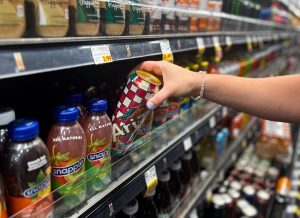Last October, Kroger struck a deal to acquire Albertsons. Although there is still a long road before a merger could happen between the two grocery giants, it is worth looking at how this could impact small and independent grocery stores, as well as consumers’ grocery bills. In particular, let’s talk about the ‘waterbed effect.’
What is the waterbed effect?
The waterbed effect is the simple idea that when you “press down” on one part of a system another part must inevitably rise, similar to the water in a waterbed. The water is merely displaced rather than removed. The waterbed effect has been used to explain a range of things from carbon dioxide emissions to the impact of regulatory decisions on the mobile phone industry in the United Kingdom.
In 2011, two economic researchers from the UK developed a model to look at this exact issue for grocery stores after antitrust authorities in the country noted they couldn’t look into a possible waterbed effect in their national grocery market because the idea was, at the time, solely theoretical without any economic foundation.
Their research model concluded that consumers would most likely be at risk for harm when the size difference between suppliers was substantial enough to allow for discriminatory pricing. They also noted that there is “an important difference when wholesale price discounts are obtained based on size differences that were created from acquisitions and when size differences were due to growth by improved efficiency.”
How does this impact grocery consumers?
It should not come as a surprise that when a retail giant like Walmart, which holds 25% of the grocery market in the U.S., demands certain prices from its suppliers, they have little choice but to agree to those terms. Currently, Kroger holds the second largest share of the grocery market, about 8%, and Albertson’s holds the third largest share with just under 5%. If they were to merge, that would only increase their negotiating power.
That kind of buying power means that a supplier is left to find alternative ways to make up the cost of giving those discounts. It may even mean that they increase the cost for customers that don’t have the same buying power to negotiate prices. Therefore, rather than lowering the cost of food overall, the cost is merely displaced onto small grocers and eventually the consumers that support those businesses.
What to keep in mind
As an opinion piece in the New York Times so poignantly put it “we need to look past the headlines about inflation and reconsider long-held ideas about the benefits of corporate bigness.”
The same article from the NYT explains how when the Robinson-Patman Act of 1936, which helped grow independent grocery stores for 40 years by mandating suppliers to offer the same terms to all retailers, stopped being enforced in the 1970s big corporations seized on the opportunity to pressure suppliers to favor their business.
When the pandemic was putting strains on the supply chain, it was small grocers that were left with empty shelves as companies like Walmart were able to essentially demand their suppliers comply with their orders first. A Walmart representative stated that their decision was all about the customer and doing what was best for them. But was their decision best for the customer or best for the corporation?
It may be worth the exercise to look at this situation a bit skeptically, or at least like a good business journalist would. If a corporation is getting massive discounts that they know their competitors have no way of getting, what are the chances that a portion of that discount goes into the corporate coffers rather than being passed on to the consumer?






